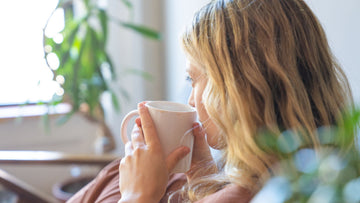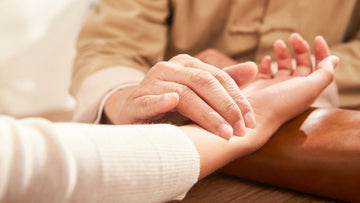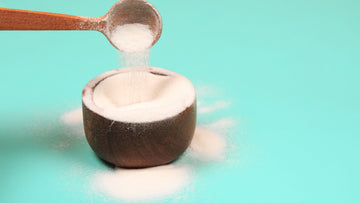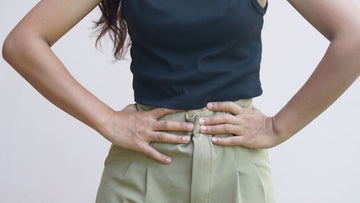
Caffeine is a staple in many of our lives—whether it's that morning cup of coffee to start the day or an afternoon pick-me-up. But for some, the habit can become more than just a ritual. It might be time to consider cutting back on caffeine, especially if it starts affecting your health and well-being. For many people, switching to a caffeine-free alternative like Not Coffee has been life-changing.
But how do you know when it’s time to make the switch?
Here are some signs, tips, and real stories from Not Coffee customers who have made the transition and haven't looked back.
1. You Feel Dependent on Coffee to Function
If your day doesn't start until you've had your coffee, and you can't focus or be productive without it, this might be a sign of caffeine dependency. Over time, caffeine can increase your tolerance, leading you to drink more to achieve the same effect.
Here’s what one Not Coffee customer had to say:
“After years of depending on caffeine to function, I felt like I was constantly chasing that first cup high but never really getting there. Switching to Not Coffee has been amazing for my energy levels—I'm no longer reliant on caffeine, and I still get to enjoy my morning ritual!” — 5-Star Review
2. You’re Experiencing Sleep Issues
Caffeine is a stimulant, and it can interfere with your sleep, even if you drink it hours before bedtime. If you're having trouble falling asleep or staying asleep, caffeine might be to blame.
“I never realised how much caffeine was affecting my sleep until I gave it up. Now that I've switched to Not Coffee, I sleep so much better and wake up feeling refreshed. I didn’t think it was possible to feel this good!” — 5-Star Review
3. You Suffer from Anxiety or Jitters
Caffeine stimulates the nervous system, which can worsen feelings of anxiety or cause the jitters. For those already prone to anxiety, caffeine can be a major trigger.
“Caffeine was making my anxiety worse. Every time I had coffee, I felt jittery and unsettled. Not Coffee has been a total game changer. It tastes just like coffee, but without making me feel anxious. I finally feel like myself again.” — 5-Star Review
4. You Experience Digestive Issues
Caffeine can irritate the stomach lining, contributing to issues like acid reflux, heartburn, and stomach aches. If you're noticing discomfort after drinking coffee, it might be time to consider a switch.
“I used to suffer from terrible acid reflux and stomach issues after drinking coffee. After making the switch to Not Coffee, all those problems disappeared. I can't recommend it enough!” — 5-Star Review
5. You Want a Healthier Option
Even decaf isn’t caffeine-free, and some studies show that unregulated caffeine content can still have an impact on your health. If you’re seeking a healthier, stimulant-free option, switching to a caffeine-free alternative is a great choice.
“I was looking for a coffee alternative that was 100% caffeine-free, not just decaf. Not Coffee has been perfect for me! I love that it's made with healthy ingredients and doesn't have any hidden caffeine. It really is the best alternative I've tried.” — 5-Star Review
6. You’re Using Coffee to Mask Fatigue
If you're constantly tired and using coffee as a crutch to get through the day, you might be stuck in a vicious cycle. Coffee can give you a temporary boost, but over time, it can actually make you feel more tired.
“I was always exhausted and drinking coffee just to get through the day, but it never really helped. Since switching to Not Coffee, I feel like I have more sustained energy throughout the day without the crashes or dependence.” — 5-Star Review
7. You're Dealing with Health Issues that Require You to Quit Caffeine
For some people, health conditions such as thyroid issues, heart problems, or adrenal fatigue can be worsened by caffeine. In these cases, giving up coffee is not just a choice, but a necessity.
“I have a thyroid condition, and my doctor told me I had to quit caffeine. I was devastated because I loved coffee. But after finding Not Coffee, I realised I didn’t have to give up my coffee ritual—just the caffeine. It’s been an amazing switch for my health.” — 5-Star Review
8. You Want to Break the Caffeine Addiction
If you find yourself needing more and more coffee to feel alert, or if you're experiencing withdrawal symptoms like headaches when you don't get your daily fix, it might be time to quit.
“I didn’t realise how much I relied on caffeine until I tried to cut back. The headaches and irritability were awful. Switching to Not Coffee helped me transition off caffeine completely, and now I feel so much better without that dependency.” — 5-Star Review
How to Transition to a Caffeine-Free Lifestyle
If you’ve decided that it’s time to cut back on caffeine, here are some tips to help you make the transition smoother:
-
Go Gradually: You don’t have to quit cold turkey. Start by replacing one cup of coffee a day with a caffeine-free alternative like Not Coffee, and gradually increase until you’re fully caffeine-free.
-
Stay Hydrated: Caffeine is a diuretic, meaning it can dehydrate you. Drink plenty of water throughout the day to stay hydrated and avoid caffeine withdrawal headaches.
-
Prioritise Sleep: As your body adjusts to life without caffeine, you might feel more tired at first. Make sure you’re getting enough sleep to help combat fatigue.
-
Choose Healthy Alternatives: Not Coffee offers a rich, bold flavour similar to coffee, but without the caffeine, sugar, or stimulants. It’s also packed with antioxidants, vitamins, and prebiotics, supporting overall health and well-being.
Conclusion
Coffee isn’t inherently bad, but it’s not for everyone—especially if you’re experiencing some of the signs mentioned above. For those who want to break free from caffeine dependency without giving up the ritual and taste of coffee, switching to a caffeine-free alternative like Not Coffee could be the perfect solution.
Our customers have made the switch and haven’t looked back—will you be next?
Explore our range of instant and ground coffee alternatives, and discover how you can keep the coffee ritual without the caffeine.





